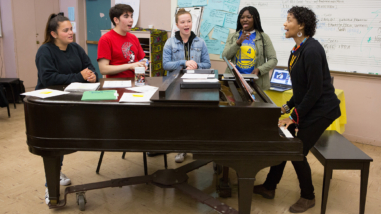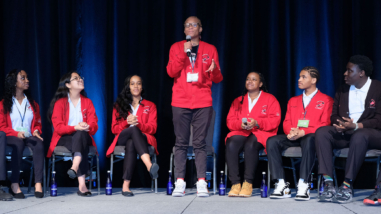Faculdades Catolicas
For A Project To Explore Brazil's Role In The Global Nuclear Order
-
Amount$92,595
-
ProgramInitiatives
-
Date Awarded11/12/2012
-
Term12.0 Months
-
Type of SupportProject
Overview
Engaging emerging power countries is a Nuclear Security Initiative priority. Many of these countries, including Brazil, are making crucial policy decisions about nuclear security and nuclear energy that will affect the ability of other states to proliferate in the future. Grants to the Faculdades Catolicas and Fundação Getulio Vargas would support pilot projects at each organization to build understanding between experts and policymakers in Brazil and the international community about Brazil’s nuclear policy, what Brazilian leaders envision for their nuclear energy program, and how they plan to engage in the global nonproliferation regime.
The goals for this cluster of grants in Brazil are to (1) increase the understanding of Nuclear Weapons States decision makers and experts of the nuances of Brazil’s positions on nuclear security, (2) increase the understanding of Brazil’s decision makers and expert community of how its decisions have ripple effects internationally, and (3) eventually develop grantees with the capacity to inform government decision making in Brazil. The theory of change contends that the interplay of these three things will encourage Brazilian policymakers to become more integrated into international nuclear security institutions, more likely to support key nonproliferation priorities, and more likely to work with the United States and other Nuclear Weapons States to contain "rogue" nations during crises. In addition, countries with nuclear weapons will become better able to constructively engage the emerging powers on nuclear policy.
About the Grantee
Grantee Website
www.puc-rio.br
Address
Rua Marques de Sao Vicente, 225, Gavea-Rio de Janeiro, 22453-900, Brazil
Grants to this Grantee
for a project to explore Brazil's role in the global nuclear order
Continuing to engage emerging power countries remains a Nuclear Security Initiative priority. Many of these countries, including Brazil, are making crucial policy decisions about nuclear security and nuclear energy that will affect the ability of other states to proliferate in the future. Grants to the Faculdades Catolicas and Fundacao Getulio Vargas would allow them to continue groundbreaking projects at each organization to build understanding between experts and policymakers in Brazil and the international community about Brazil’s nuclear policy, what Brazilian leaders envision for their nuclear energy program, and how they plan to engage in the global nonproliferation regime.
The goals for this cluster of grants in Brazil are to (1) increase the understanding of Nuclear Weapons States decision makers and experts of the nuances of Brazil’s positions on nuclear security, (2) increase the understanding of Brazil’s decision makers and expert community of how its decisions have ripple effects internationally, and (3) eventually develop grantees with the capacity to inform government decision making in Brazil. The theory of change contends that the interplay of these three things will encourage Brazilian policymakers to become more integrated into international nuclear security institutions, more likely to support key nonproliferation priorities, and more likely to work with the United States and other Nuclear Weapons States to contain "rogue" nations during crises. In addition, countries with nuclear weapons will become better able to constructively engage the emerging powers on nuclear policy. We are working with principle investigators from both organizations to transition the projects to other funders inside and outside Brazil after Hewlett exits the field.



